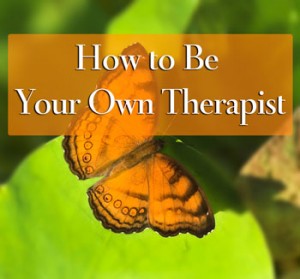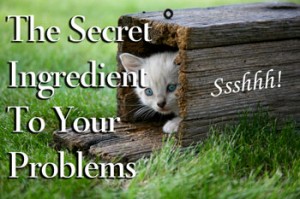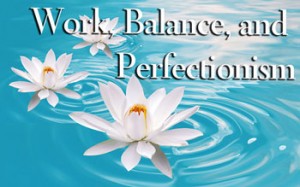
Mindfulness Reduces Stress, but I Wasn’t Sold
If you’ve ever heard of mindfulness, you might know that mindfulness reduces stress. You might assume that therapists are experts in mindfulness. I will admit when I was first introduced to it, that I was not sold on how much of an impact it could actually have on my life.
When I was still in my internship, one of my responsibilities was running a Dialectical Behavioral Therapy group. One of the core skills that I taught using this model included mindfulness. I had been exposed to mindfulness before, but never to this extent. I wasn’t convinced that just practicing a few minutes a day of something could truly make a difference in my overall stress level and ability to focus.
Mindfulness has gained a lot of popularity recently, and it sounds like something that is meant for the yoga studio or the meditation cushion. How could simply slowing down actually put a dent in the amount of stress, worry, and overall tension in my life? Of course, in theory, I was all for it. But, I hadn’t actually practiced it.
Since I don’t ask my clients to do anything that I’m not willing to do myself, I totally immersed myself in the same exercises that I was giving them for “homework.” The more I practiced mindfulness, the more I started to really experience its benefits.
I First Tried The Easiest Mindfulness Exercise. Ever.
One of the first things that I first started practicing was paying attention to my breath. I would spend just two minutes a day noticing how I was breathing, and would make it intentional, rather than automatic. I focused on my breath in, the rise of my chest and expansion of my stomach, and focused on the breath out. I noticed the cooler air coming in and the warmth of the exhale. I felt how my shoulders moved, and my chest expanded. I explored the sensations as if I were an alien that invaded this body and was experiencing the act of breathing for the first time.
This totally calmed down my nervous system. I was able to slow down my thoughts. I was able to pay closer attention to what was happening in the present moment, rather than the stories I had in my head about the past or the future. Most importantly, I was able to drown out the numerous distractions that made it hard to feel like myself.
I decided that mindfulness was awesome.
So what exactly is mindfulness?
Mindfulness is a technique used to bring our attention to the present moment. It calms us and reduces outside noise so that we have greater access to our intuition.
Think about trying to tune into a radio station that has a lot of static; you can sort of hear the music, but it’s muffled, and the signal keeps going in and out. Mindfulness can be used to fine tune our “station” so that we can fully experience our emotions, bodily sensations, and the world around us, and can better assess what we need and want.
Being mindful has had an incredible impact on my quality of life— by increasing my ability to manage stress, growing my tolerance for experiencing uncomfortable emotions, giving me more focus on everyday activities, allowing me to fully experience happy moments, and has even helped me make better decisions!
One of the best parts of mindfulness is that it’s portable, it’s free, and it’s flexible. You can practice mindfulness for 5 seconds or 5 hours, and there is no special equipment needed! No one even has to know when you’re doing it. There are also so many different ways that you can practice mindfulness; from breathing exercises, to counting, to being out in nature, to even everyday activities like driving or washing dishes. We can figure out a way to integrate this practice into our lives in easy and beneficial ways.
If you are curious about how mindfulness reduces stress and how you can harness your own power to calm your nervous system and create new possibilities, reach out for a free consultation so we can talk about how your life will change for the better.

 I have a really bad habit when I’m trying to stay motivated to change something about my life. It’s something that I recognize does me no good, but it creeps up on me like the dishes and the laundry. I don’t notice it at first, but then suddenly I’m knee-deep. Somehow my optimism about things has dissolved and I have a case of the screw-its. I’m talking about feeling discouraged at the amount of progress I’ve made in my endeavors. Trying to be a better parent and spouse. Trying to do the things that I know are important for my mental and physical well-being. Have you ever worked hard at something, but couldn’t stay motivated because you weren’t seeing any progress? Since I’m a human, I do things that work against my peace of mind. And, since I’m a therapist, I know I didn’t invent this little mind game. In my Lakewood counseling practice I see this all the time.
I have a really bad habit when I’m trying to stay motivated to change something about my life. It’s something that I recognize does me no good, but it creeps up on me like the dishes and the laundry. I don’t notice it at first, but then suddenly I’m knee-deep. Somehow my optimism about things has dissolved and I have a case of the screw-its. I’m talking about feeling discouraged at the amount of progress I’ve made in my endeavors. Trying to be a better parent and spouse. Trying to do the things that I know are important for my mental and physical well-being. Have you ever worked hard at something, but couldn’t stay motivated because you weren’t seeing any progress? Since I’m a human, I do things that work against my peace of mind. And, since I’m a therapist, I know I didn’t invent this little mind game. In my Lakewood counseling practice I see this all the time.
 Be your own therapist? This is what you need to know
Be your own therapist? This is what you need to know

 As I sit with some rare and (sort of) precious computer time while my toddler naps, I realized that I hadn’t done a blog post or a Facebook or Twitter update in so long! The thought of “catching up” suddenly inspired the perfectionist procrastinator in me to dread it, feel overwhelmed and somewhat lame for letting things go. But this is also a great opportunity to explore what the term “balance” means to me, and why it is that I don’t feel “effective” or “productive” unless I’m all-consumed by a project?
As I sit with some rare and (sort of) precious computer time while my toddler naps, I realized that I hadn’t done a blog post or a Facebook or Twitter update in so long! The thought of “catching up” suddenly inspired the perfectionist procrastinator in me to dread it, feel overwhelmed and somewhat lame for letting things go. But this is also a great opportunity to explore what the term “balance” means to me, and why it is that I don’t feel “effective” or “productive” unless I’m all-consumed by a project?